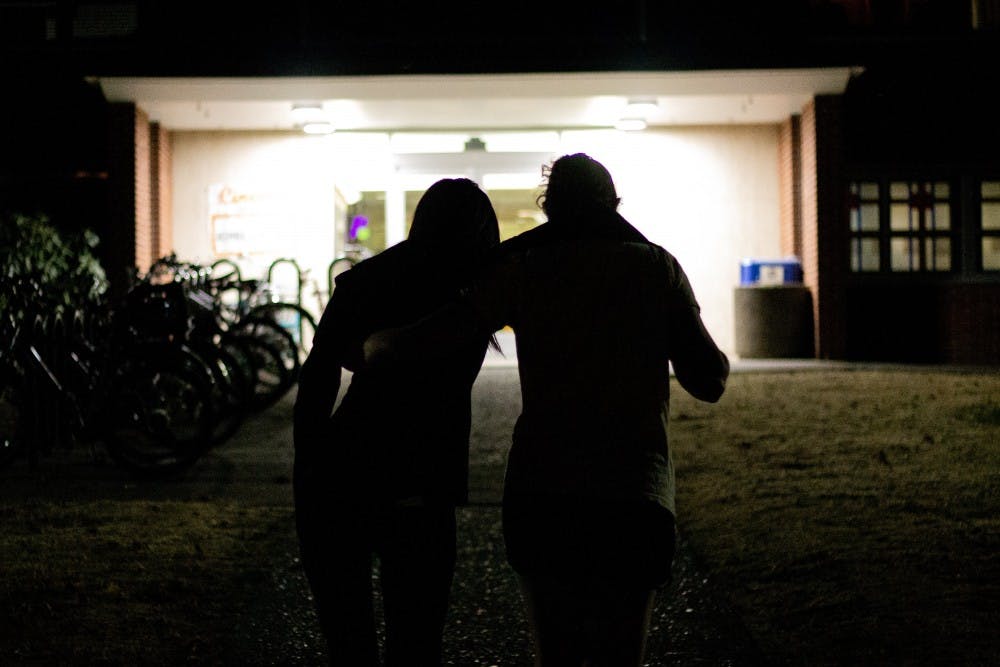It’s a Friday night and a student comes home to their dorm room, drunk. After stumbling around and slurring their words, the student passes out.
Their roommate knows they need medical attention, but he or she doesn’t want to call Public Safety because they are both under 21.
Many students may have heard of a situation like this, or have been in a situation like this themselves.
Previously, if a student had an alcohol-related emergency and required medical attention, the student would have to go through the student conduct process and the incident would be added to their student record.
But because of the new Pilots Care policy, a student may be able to avoid going through the student conduct process and having alcohol-related incidents added to their record, as long as the student meets the policy requirements.
“This is a policy about getting help for yourself or others,” Associate Director of Community Standards Sarah Meiser said. “If you’re not getting help, you don’t get to participate in that process.”
The Pilots Care policy was added to the student handbook this year to encourage students to seek medical attention for themselves and others without fear of going through the student conduct process for a policy violation such as alcohol or drug use.
To benefit from this new policy, students must meet the three expectations.
Students must first proactively contact an appropriate authority — like Public Safety, residence hall staff or 911 — to seek medical attention for themselves or another person.
If a bystander, like an RA or a Public Safety officer, notices a student needs medical attention and calls for help, then the student does not receive the benefits of the policy because the student did not actively seek out help.
Then, the student who proactively contacted authority must remain with the individual requiring medical attention. Lastly, the student must also cooperate with responding emergency officials.
Students may see this policy as a way to avoid consequences when they drink, but junior Shipstad Resident Assistant Nick Bartels cautions them to think otherwise.
“Some people might think of it as a get-out-of- jail- free card, which it isn’t,” Bartels said.
Under the Pilots Care policy, students won’t have to go through the student conduct process, but they will still be required to meet with Meiser or another staff member she assigns.
If needed, Mesier will also give the students a referral to outside resources. The students will likely be required to participate in an online alcohol education tutorial.
Students who meet the requirements of this policy will not have the incident appear on their student conduct record, which shows up when the student applies for on-campus jobs and studies abroad programs.
The information won’t be logged into the student conduct software as an alleged violation of policy. However, Meiser said there will be a “paper trail” documenting the incident either with hall staff or Public Safety.
Junior Shipstad RA’s Cole Malibiran and Bartels said they discussed the policy with residents to create a community of trust, and said they want their residents to call them if they ever need help.
The two emphasized that the policy was not created to be abused.
“We don’t want you (the students) to get absolutely shitfaced time and time and time again and then keep using the policy,” Bartels said. “It’s really supposed to be a one-time use.”
Bartels and Malibiran said they hope it will be used responsibly and will encourage an environment where residents feel more inclined to ask for help.
“It’s not an invitation to drink,” Malibiran said.
Meiser emphasized that UP’s values remain the same, and student’s well-being always comes first. She hopes the policy removes any potential hesitation students may have when deciding if they should ask for help.
“Our students care about each other, and this policy doesn’t change that,” Meiser said.
Delaney Vetter is a news reporter for The Beacon. She can be reached at vetter20@up.edu.








